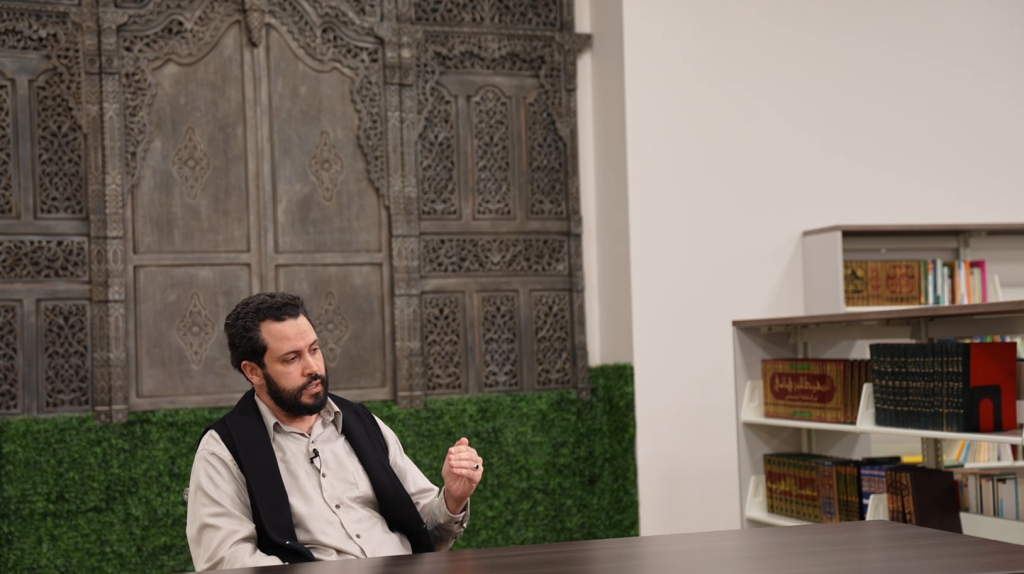
About twenty years ago, Dr. Choukri Heddouchi, at the time a doctoral student at the University of Chicago, decided to attend an on-campus Tafsīr session of Shaykh Amin’s. This was part of a series for Muslim students. Since highschool, Dr. Heddouchi has had a special interest in the topic. He recollects, at the time, he was independently studying the Tafsīr of Surah al-Falaq. It just so happened that Shaykh Amin shared the Tafsīr of that particular sūrah. A door seemed to open,
“From listening to Shyakh Amin, I quickly noticed the exceptionally high caliber of the scholarship he was representing and advocating. Darul Qasim was then […] in its early infancy. I started teaching at Darul Qasim as a volunteer.”
For Dr. Heddouchi, the connection was instant. His love for Tafsīr and Shaykh Amin’s approach to, and vast knowledge of the topic was what gave him the impetus to walk through this particular gate of knowledge. Yet, what became particularly inspiring and motivating for Dr. Heddouchi was that Shaykh Amin “knew how to read [the] Qurʾān…both being faithful to its original meaning and universality, but also had this ability to read daily life into those principles.” Something so rare, but necessary.
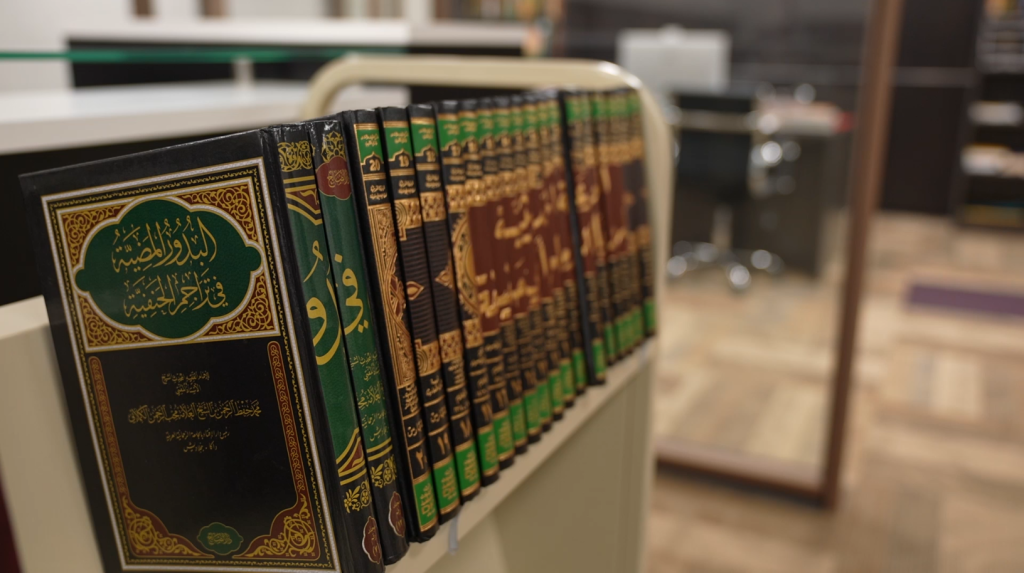
Upon completion of his doctorate in Near Eastern Languages and Civilizations, Dr. Heddouchi had to leave Darul Qasim for a postdoc at the Anthropology Department of University of New Mexico. He continued to remain in touch with Darul Qasim, via teaching remotely and once he finished his Post-Doc and had his own children he says,
“I realized the dire necessity for a high quality institute for Islamic learning. Such an institute must be not only a spiritual center, but also the core of a rigorous research university. Darul Qasim is on its way to meet this tremendous challenge, but it will take sustained collective efforts.”
Now, twenty years later, Dr. Heddouchi is Chair of the Department of Arabic and Dean of Students at Darul Qasim. He is part of these sustained collective efforts and his knowledge and expertise affords students a superior learning environment. Like all faculty at Darul Qasim, he puts a focus on an intellectual understanding of Islam. For him, this cannot be viewed as a luxury. “If you do not have an intellectual understanding of Islam, most likely you will not know how to handle intellectual challenges.” Navigating intellectual challenges is part and parcel of living in a country with a non-Muslim majority. And in a sense Darul Qasim is:
“A bridge between traditional learning of Islam and western academia. It really gives you a balanced view of things and it makes you comfortable in both worlds. [You can] have an informed conversation with traditionally trained scholars and you can have a very comfortable dialogue in western academia.”
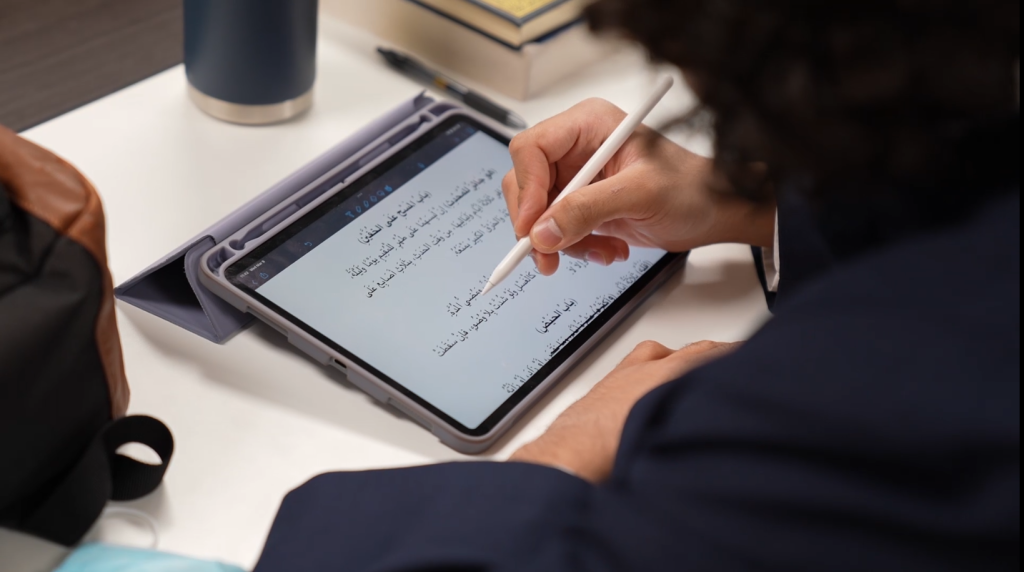
In his classroom, he is keen on giving students the tools they need to develop a solid understanding of what they are studying. In teaching, “[I] make sure they understand what they are doing, and [try to] get an idea of what they are thinking.” He pushes the “why” question, “If you can’t answer “why” you have a problem!” As a teacher, he has a great appreciation for theory. Theory is central in solidifying one’s understanding.
“Theory is, although it’s not obvious everyday, it’s in the background and what keeps things together. And your understanding is an intellectual process. Your worldview is a hypothesis. That’s why you must have a solid understanding otherwise you will not handle challenges well.”
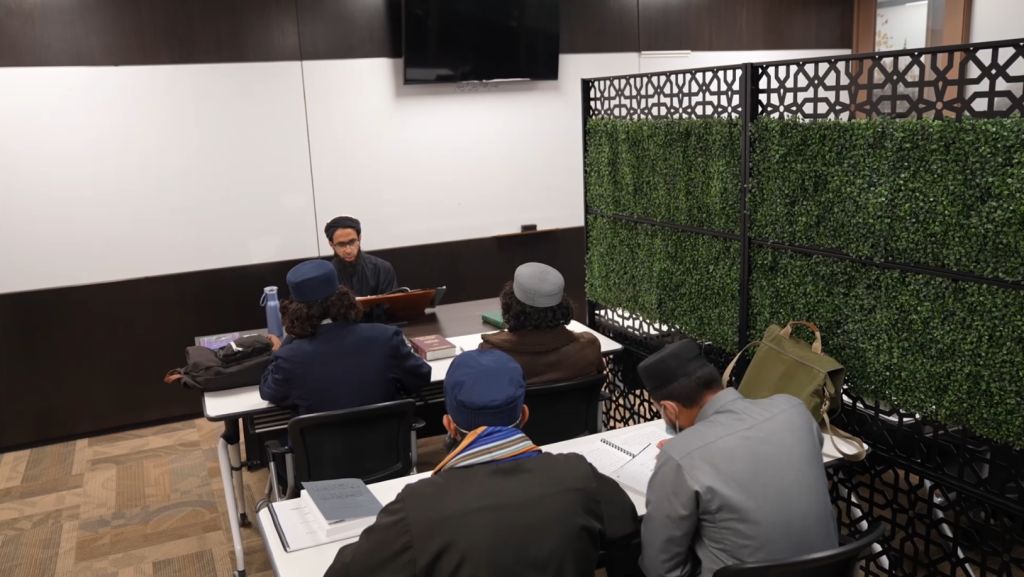
Alongside navigating intellectual challenges, such an approach does not negate the variations that exist within the Muslim tradtion, but rather shows students how to handle and appreciate differences. Dr. Heddouchi highlights how Darul Qasim respects these differences,
“That’s why we have scholars from different parts of the Muslim world, these people have different backgrounds but there is a common scholarly language that creates respect and understanding.”
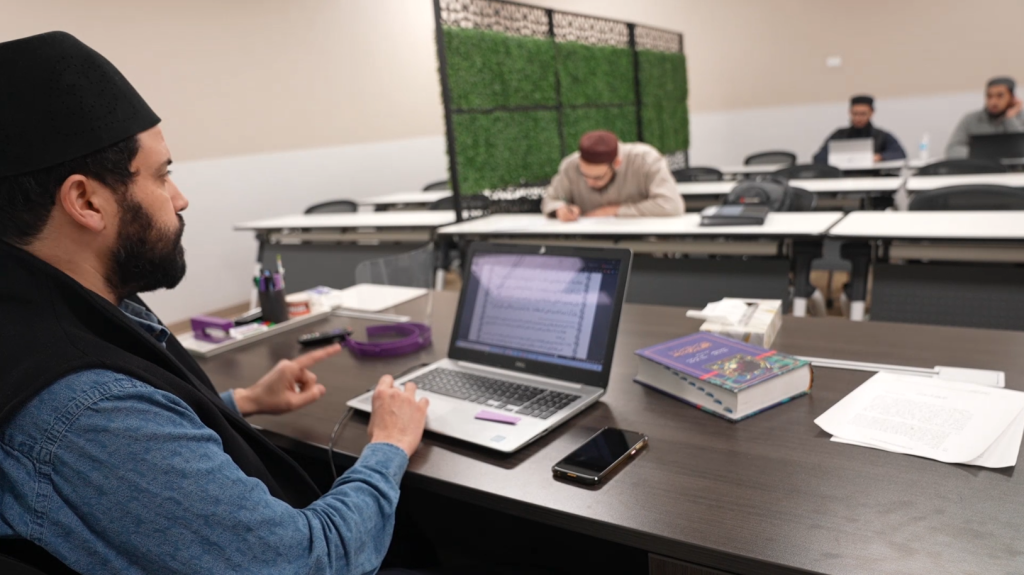
Getting to Know Dr. Heddouchi
Growing up in Morocco and receiving his doctorate in the US, Dr. Choukri Heddouchi is a part of the diverse faculty that represents Darul Qasim’s educational landscape. When asked who has been an inspiration for him on a personal level, Dr. Heddouchi shares,
“My grandmother is a person that I appreciate very well. She was not a very learned lady in the sense of having a classical education, but she was all practice. […] The dedication of what she was doing every day, serving everyone around her…everyday…mā shāʾ Allah that was something to appreciate.”
He smiles warmly as he narrates this recollection. He goes on: “I remember her every morning, she will wake up, make sure we wake up…knead the bread. She prepared the bread herself and doing her tasbīḥāt (hymned praises) and tahlīlāt (reciting the declaration of faith).”
One of the most interesting places Dr. Heddouchi has traveled to, is the old city of Fez. He went there to study the utilitarian aspects of its pre-modern architecture for a thesis. He shares,
“However, the more I knew about the history of the city, the more I admired its intellectual history. The monuments turned out to be only a beautiful external shell of a profound intellectual life that was beyond my expectations.”
When asked to share his favorite books or genre of books, Dr. Heddouchi explains,
“Sometimes when you are working on a long term project like a dissertation, you need breaks when you read something that has nothing to do with your project. I decided to read the Masnavi of Mawlana Rumi. Since I was fresh from learning the basics of Persian, I decided to read it both in Persian and translations. The ability of Mawlānā to retell stories and myths as archetypes of human realities is consistently striking. Unfortunately, many translations do not do justice to his message.”
Another book that he finds impressive, that also deals with human realities, but from a very different perspective is the Muqaddimah of Ibn Khaldūn.
“The Muqaddimah of Ibn Khaldūn focused on the mundane as fundamental for understanding human behavior, individually and collectively. In a sense these two books complete each other since together they deal with the human condition in its totality.”
Darul Qasim is an institution that boasts some of the most diverse and intellectually sound scholarship in North America. Their unique approach to an intellectual understanding of Islam has no rival. Dr. Choukri Heddouchi and all teachers at Darul Qasim are committed to transforming this space into a rigorous research university that simultaneously feeds a students spirit and soul and helps them to navigate today’s intellectual challenges.
Dr. Choukri Heddouchi | Chair, Department of Arabic
